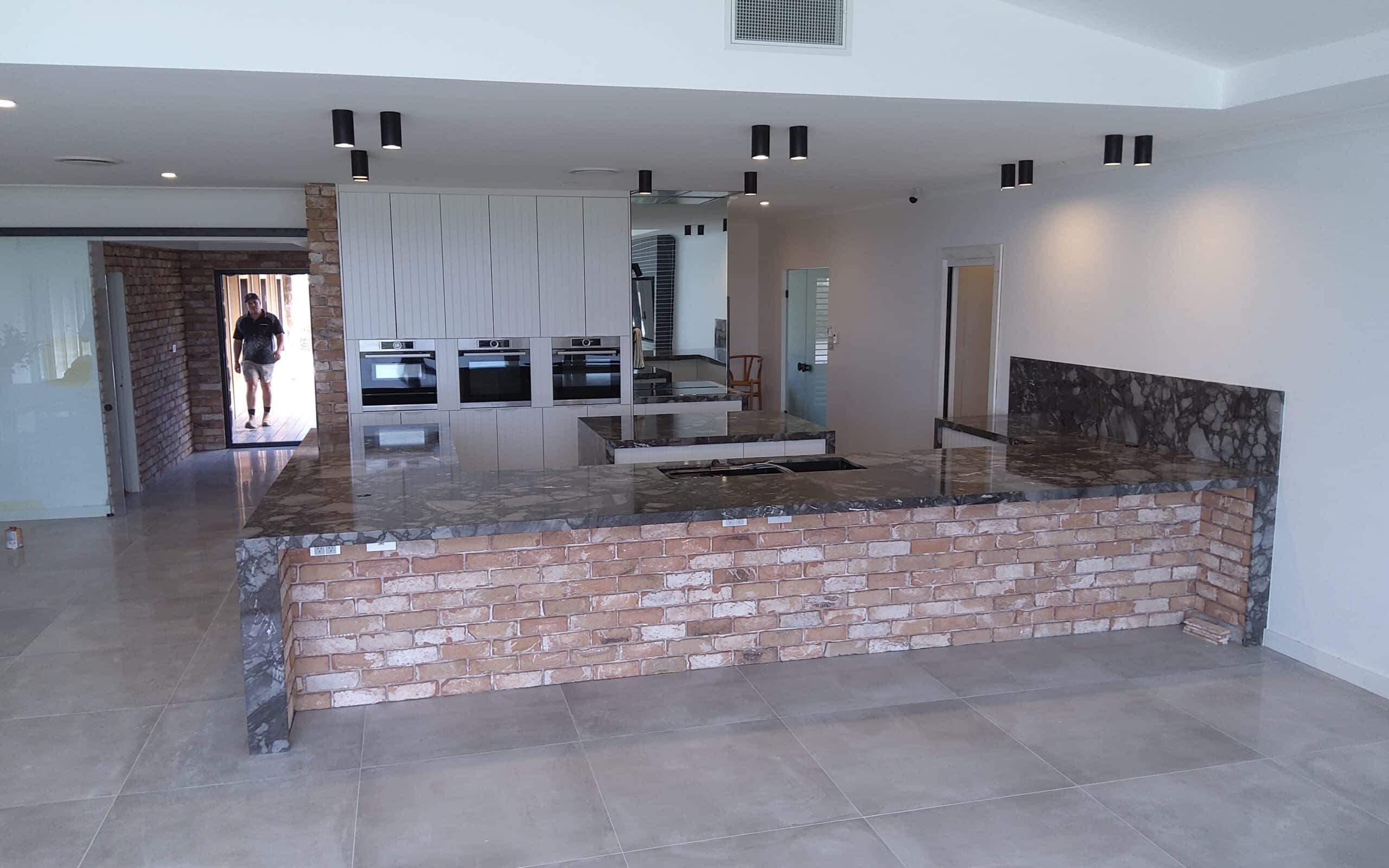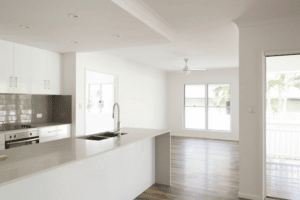Ever wondered about the materials that have shaped our architectural heritage through the ages? Stone masonry, an ancient craft, has been essential in creating enduring and visually stunning structures. Not all stones serve the same purpose or offer the same benefits. Understanding the unique properties of different stone types is key for builders and architects aiming to combine historical charm with modern functionality. In this blog, we’ll explore stone types ideal for masonry, highlighting sandstone’s unique blend of aesthetics and practicality for contemporary designs.
1. Granite
Granite, renowned for its hardness and durability, is a premium choice for masonry projects that demand longevity and aesthetic appeal. This natural stone, formed from cooled magma, boasts a rich palette of stone colours and unique grain patterns, making each piece one-of-a-kind. Its resistance to scratches and heat makes it ideal for high-traffic areas and kitchen countertops. Granite’s natural beauty and practical attributes ensure that structures stand the test of time and retain their timeless elegance.
2. Engineered Stone
Engineered stone offers a modern twist on traditional masonry materials. Made from a blend of quartz and resins, it provides:
- Exceptional durability, rivalling that of natural stones.
- A wide range of colours and patterns, customisable for any design aesthetic.
- It is low maintenance thanks to its non-porous surface, which resists staining and bacterial growth.
These features make engineered stone a versatile option for residential and commercial projects where the aesthetics of natural stone are desired. Still, the benefits of modern engineering are also needed.
3. Marble
Marble has been a symbol of luxury and refinement throughout history. This metamorphic rock is known for its veined appearance and luminous quality, making it a favourite for sculptures and buildings. Marble’s natural coolness is ideal for hot climates, offering elegance and comfort. Despite its relative softness and susceptibility to staining, marble remains a popular choice for areas where its beauty can shine without the wear and tear of heavier use.
4. Sandstone
Sandstone is a versatile building material used for centuries, with various colours and textures. It’s particularly favoured for its ease of workability and thermal stability, making it perfect for indoor and outdoor applications. Architects, builders and homeowners should consider sandstone for its timeless beauty and practical benefits.
The best type of sandstone for construction often depends on the project’s specific needs. However, quartz sandstone is widely regarded for its durability and resistance to weathering, making it an excellent choice for many construction projects. Commonly, sandstone’s ability to hold detail and its natural beauty make it a preferred material for decorative masonry, showcasing its utility and classification as a sedimentary rock.
Transform Your Space With Professional Stonemasonry
Understanding the characteristics and uses of different types of stones is essential for anyone involved in masonry projects. Each stone type offers unique benefits and challenges, from marble’s luxurious appeal to granite’s rugged durability.
At Vivid Stoneworks, we embrace the artistry and precision required in selecting and working with these materials. As a premier stonemason in Newcastle, our expertise extends to crafting exquisite, custom stonework that elevates any space’s functionality and aesthetics. Whether you’re in need of a sophisticated marble foyer, a resilient granite kitchen countertop or a bespoke engineered stone installation, our team is dedicated to bringing your vision to life with unparalleled craftsmanship. Contact us today.




